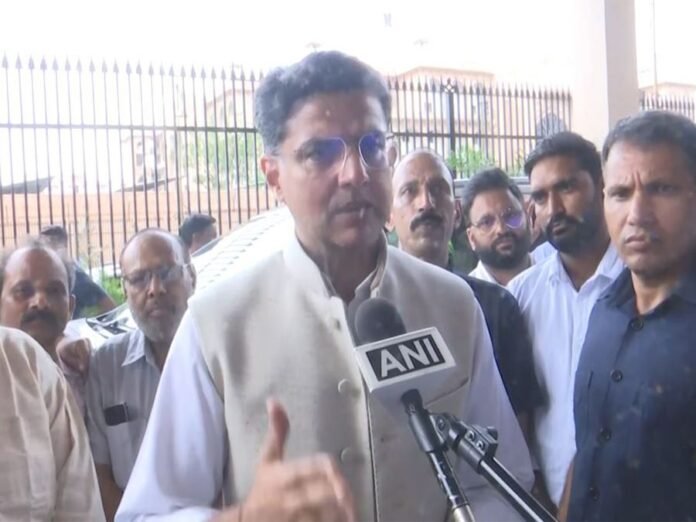Indian Congress leaders fired sharp criticism at the U.S. decision to slap a whopping $100,000 annual fee on H-1B visa applications, calling it a blow to Indian professionals and a sign of strained India-U.S. relations. They also pointed fingers at Prime Minister Narendra Modi’s government for not pushing back harder against these unilateral moves.
Sachin Pilot, a prominent Congress figure from Rajasthan, slammed the policy during a speech in Jaipur on Saturday. “The U.S. keeps hitting us with these actions—why? We heard so much about the strong bond between PM Modi and President Trump, yet they’re slapping the highest tariffs on us,” Pilot said. He highlighted how the H-1B fee targets educated Indians chasing jobs abroad, worsening employment woes back home. “If we’re getting squeezed everywhere, the Indian government needs to step up strong—no need to fear anyone,” Pilot urged, adding that it exposes weaknesses in India’s diplomacy.
Earlier that day, fellow Congress leader Pawan Kumar Bansal warned that America’s anti-immigration push and tariffs could leave the U.S. isolated on the global stage. “They’re imposing tariffs, adding restrictions, and even deporting people—keep this up, and they’ll end up alone,” Bansal told reporters. He defended the H-1B program, noting how U.S. tech giants actively recruit skilled Indian workers for roles in IT, engineering, architecture, and medicine. “Big American companies beg us to come work for them because they need this talent. Sponsoring these visas helps everyone,” he explained. Bansal questioned if the U.S. really thinks it can go it alone, predicting long-term damage to America’s economy within months or a year.
Manish Tewari, another Congress voice, described the U.S. actions as a deliberate squeeze on India. “From pushing that early ceasefire in Kashmir at Pakistan’s urging, to hosting Pakistan’s army chief at the White House, and now these tariffs—it’s all systematic belligerence,” Tewari said. He tied it to broader issues like U.S. support for Saudi-Pakistani defense ties, warning that such steps spell trouble for India-U.S. bilateral relations.
The new policy, announced by President Donald Trump in a proclamation called “Restriction on Entry of Certain Nonimmigrant Workers,” kicks in on September 21. It aims to crack down on H-1B visa abuse, especially by IT outsourcing firms that the administration blames for replacing American workers and driving down wages. Officials argue the program, meant for top foreign talent, has been twisted to favor low-paid entry-level hires, raising national security red flags over visa fraud and money laundering probes.
Under the rules, U.S. employers must now prove they’ve paid the $100,000 fee when filing H-1B petitions, with oversight from the State and Homeland Security departments. A few exemptions apply for national interest cases.
This hike could disrupt the flow of Indian software engineers heading to the U.S. for onsite work, shaking up the tech industry’s cost-saving model. On the flip side, it might boost Global Capability Centers in India, where companies handle high-end services from home soil.
Stay informed on all the latest news, real-time breaking news updates, and follow all the important headlines in world News on Latest NewsX. Follow us on social media Facebook, Twitter(X), Gettr and subscribe our Youtube Channel.



